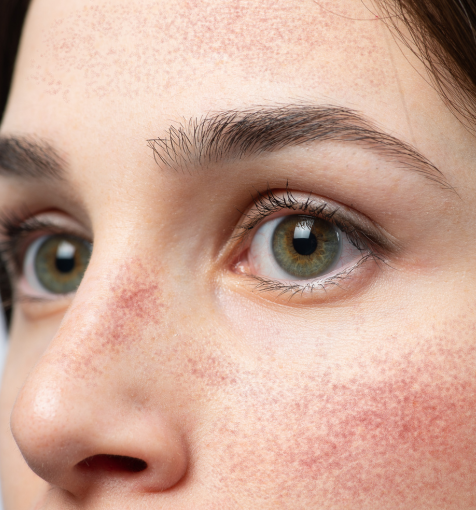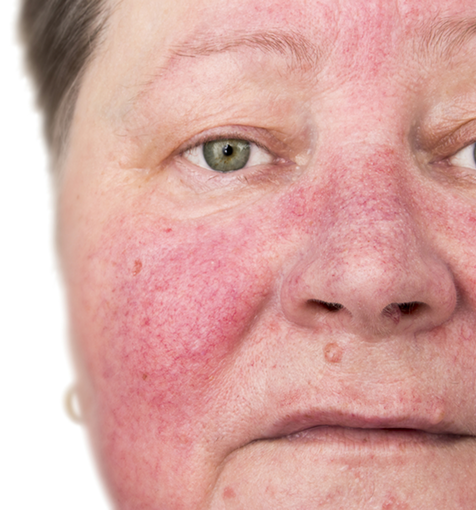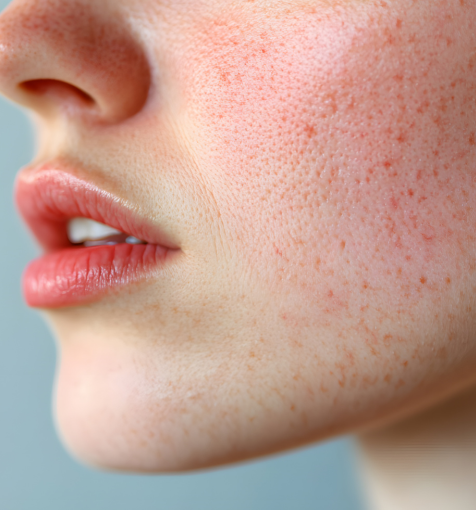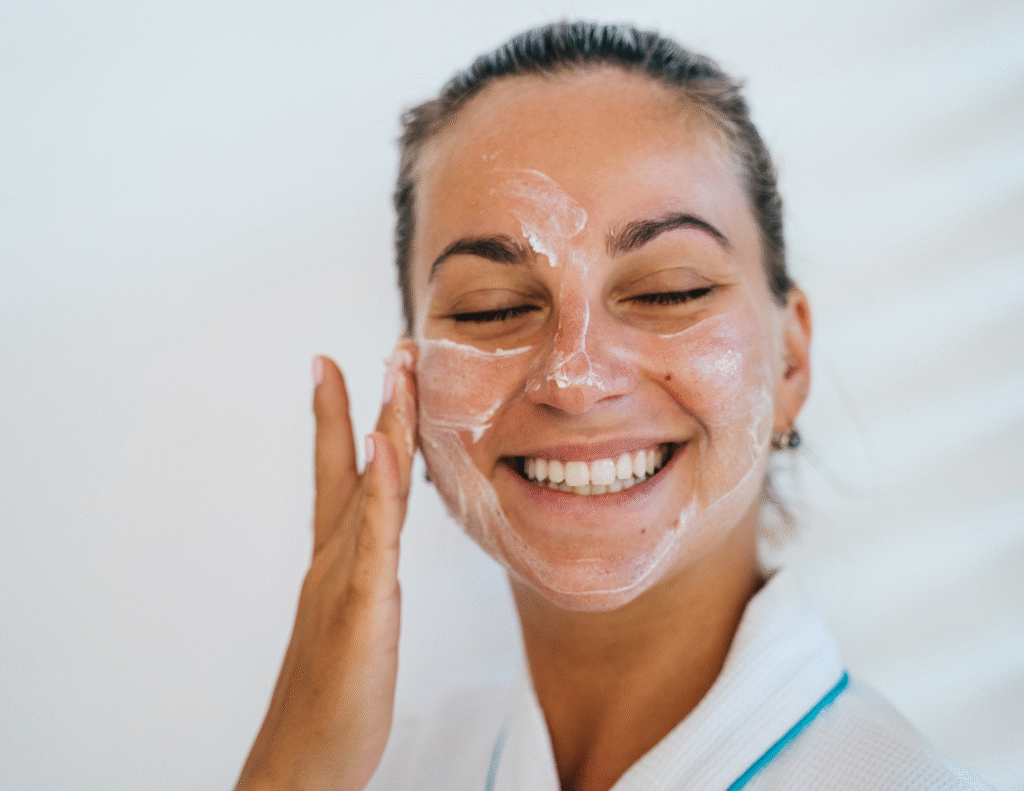Specialized Care for Rosacea Symptoms in New Jersey
Rosacea is a chronic inflammatory skin condition that affects an estimated one in ten American adults. Characterized by facial redness, visible blood vessels, flushing, bumps, pimples, and sometimes eye irritation, rosacea can cause both physical discomfort and emotional distress. At Skin & Laser Center of NJ, our dermatologists provide expert care and personalized treatment plans to help patients reduce flare-ups, manage symptoms, and restore confidence in their appearance.


While the exact cause of rosacea is still not fully understood, research suggests that it is influenced by a combination of genetic, vascular, and environmental factors. Possible contributing causes include:
Abnormalities in the blood vessels of the face
An overactive immune response to microscopic mites on the skin
Sensitivity to environmental stressors, such as sunlight or temperature changes
A family history of rosacea, making genetics an influencing factor
Women between the ages of 30 and 50 are most likely to develop rosacea, but when men are affected, the condition often presents with more severe symptoms—such as significant redness and thickening of the skin on the nose (rhinophyma). Regardless of severity, rosacea can have a lasting impact if left untreated, making professional care essential.
Rosacea symptoms often worsen with exposure to specific triggers. Identifying and avoiding these triggers is one of the most important steps in long-term management. Common flare-up triggers include:
Hot drinks and spicy foods
Alcohol, particularly red wine
Emotional stress or anxiety
Sun exposure and harsh weather conditions
Vigorous exercise
Hot baths or saunas
Our team works with patients to identify personal triggers and provides education on lifestyle changes that can reduce symptom flare-ups. With the right preventive measures, many patients experience longer periods of relief and better control over their skin.


Although rosacea has no known cure, our dermatologists offer a range of treatments designed to manage symptoms, minimize flare-ups, and improve skin appearance. Treatment options may include:
Topical medications: Prescription creams or gels to reduce redness and inflammation
Oral medications: Antibiotics or other prescriptions to control moderate to severe cases
Laser and light-based therapies: Target visible blood vessels and redness for clearer skin
Lifestyle guidance: Education on diet, skincare, and stress management tailored to each patient’s needs
Treatment plans are customized for every individual to ensure that symptoms are addressed effectively and patients feel confident in managing their condition.
Learn More About Rosacea
Each type of rosacea presents and is treated differently, so one of the first steps during your consultation at Skin & Laser Center of NJ will be identifying your type of rosacea:
After your provider has assessed your skin and diagnosed you with rosacea, you will get a customized treatment plan developed to fit your unique needs. Certain treatments work best for flushing, while others are more effective for addressing bumps or pimples. Treatment may include some combination of strategies.
In addition to these treatment options, there are other steps you can take to minimize the severity of your rosacea. These include:
Our dermatologists also help patients manage symptoms of other chronic conditions—such as eczema and psoriasis—as well as diagnose and treat a range of medical dermatology issues, including acne, skin cancer, and more.
Convenient walk in hours available below. No appointment needed! Accepting private insurance and medicare. No medicaid plans.
Learn more about medical treatments at New Jersey’s Skin & Laser Center of NJ. Call 201-500-7525 or contact us online to schedule a consultation.